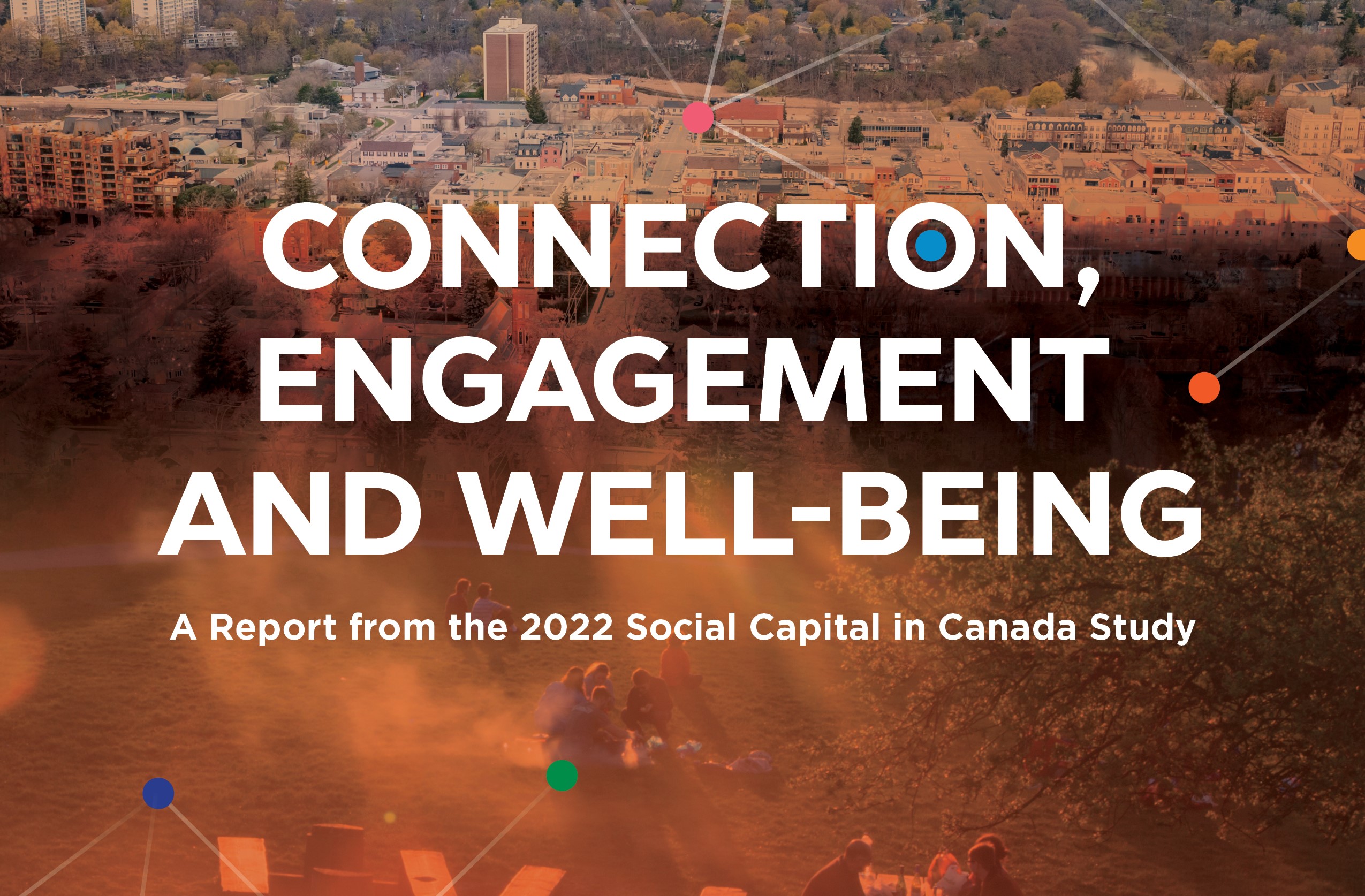Connection, Engagement and Well-being

Connection, Engagement and Well-being
A Report from the 2022 Social Capital in Canada Study
How can communities best measure the well-being of their citizens? Often this is done using economic measures of employment, income and inequality. There are also statistics reporting on incidences of crime, of homeless or of disease (most recently focusing on cases of COVID-19). As indispensable as these measures are, they still miss some of the key ingredients of inclusive, healthy and vibrant communities. The concept of social capital widens the lens to include measures that assess whether people feel included in, connected to and supported by the communities in which they live. “
The Social Capital in Canada 2022 Study addresses these dimensions of well-being by focusing on the extent to which Canadians feel included in, connected to and supported by the communities in which they live. The study is based on a survey of a representative sample of 2,001 Canadians age 18 and over in all provinces, conducted online between June 15 and 27, 2022. It was commissioned by Community Foundations of Canada and conducted by the Environics Institute for Survey Research.
This national survey was conducted in parallel with the 2022 Toronto Social Capital Study, which in turn was built upon a previous Toronto study conducted in 2018.
Summary of key findings
This report highlights two major challenges facing communities across Canada.
The first is the connection between economic insecurity and social isolation. The stark reality is that the more economically vulnerable a person is in Canada, the less well-connected they are to family, friends and neighbours. This greater sense of isolation compounds the economic challenges facing individuals and families living with low incomes in our communities.
The second challenge is the decline in community engagement. Adults in Canada are less likely today than they were a decade ago to participate in groups or associations, to volunteer, to donate to charities. These trends in engagement affect the resources (both financial resource and people-power) that communities have at their disposal to help those in need. Those with less economic security are less well-connected and require more support from their neighbours, from community organizations and from governments. But with fewer citizens volunteering or making charitable donations, many community agencies themselves are feeling stretched.
These findings highlight the need for organizations across the country to focus their efforts on rebuilding relationships, reconnecting citizens and strengthening the social networks which underpin the health and vibrancy of out communities.
Read the report.
Lisez le rapport.
For more information on this study, contact Dr. Andrew Parkin or the Environics Institute.
Survey materials
Report: Connection, Engagement and Well-beingRapport: Liens, Engamenet et Bien-Être
Read the report from Community Foundations of Canada (CFC) /Fondations communautaires du Canada (FCC)
Read the related reports from the Toronto Social Capital Studies
Detailed data tables
Research note on social connectedness
Guide to the social capital indexes
Like what you're reading? With our bi-monthly e-newsletter, you can receive even more with the latest details on current projects, news, and events at the institute.
Subscribe